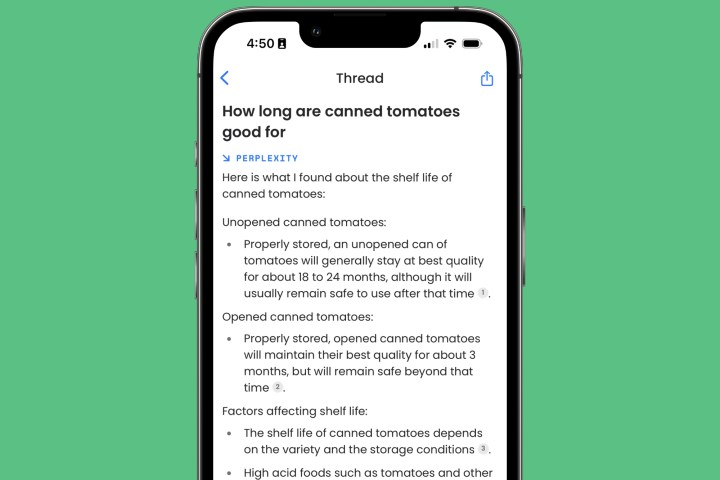Perplexity bills itself as an AI-empowered direct alternative to Google.
Whereas Google operates a search engine, Perplexity aims to operate an AI answer engine that allows users to “ask any question.” It then “searches the internet to give you an accessible, conversational, and verifiable answer,” per the company FAQ. If that sounds like an AI-enhanced version of search, you’d be right.
There’s no question that it’s been an unabashed hit since its launch in 2022. But it now finds itself facing litigation.
News Corp has officially filed a lawsuit against Perplexity AI over accusations that the startup has committed copyright infringement on a “massive scale.” The suit, filed Monday, alleges that Perplexity lifted news, opinions and analysis directly from its Wall Street Journal and New York Post publications. This isn’t the first time the AI app has been under fire for its business practices, and it’s likely not going to be the last.
A new kind of search
Perplexity doesn’t use a proprietary AI, as Anthropic, OpenAI, or Google do. Those models have their own legal troubles, but Perplexity is different in that it relies on open-source and commercially available models to process the information it scrapes from the public web.

Perplexity is something new. By its nature as an answer engine, Perplexity does not drive click traffic to independent sites. It’s not hard to see why a company like News Corp could see Perplexity as a true enemy of its operations.
The argument hinges on far more than just dealing with some new competition, though.
Perplexity’s history of sticky-fingered behavior

The company has already come under fire from publishers and content creators multiple times in 2024 alone. In June, for example, Forbes chief content officer Randall Lane accused Perplexity of “willful infringement” of Forbes’ reporting.
https://twitter.com/JohnPaczkowski/status/1799135156051255799
In July, Conde Nast sent a cease-and-desist letter to Perplexity, again accusing it of lifting content from The New Yorker, Vogue, and Wired — the latter of which published its own damning report on Perplexity’s actions.
“According to server logs, that same IP [believed to belong to Perplexity’s web crawler] visited properties belonging to Condé Nast, the media company that owns Wired, at least 822 times in the past three months,” Tim Marchman wrote for Wired. He notes that figure is “likely a significant undercount, because the company retains only a small portion of its records.”
The New York Times went on to send a cease and desist letter of its own to Perplexity in October. The publication claims that the startup’s actions in scraping and summarizing its stories violate copyright law. The letter demands that Perplexity “immediately cease and desist all current and future unauthorized access and use of The Times’s content.”
Too little, too late?
Don’t expect Perplexity’s legal troubles to diminish any time soon. Even with general decline of online journalism in recent decades, there is still way too much money to be made by industry heavyweights at Condé Nast and New Corps to simply roll over.
News Corp’s lawsuit also alleges that Perplexity routinely hallucinated and misrepresented facts in its answers, “sometimes citing an incorrect source, and other times simply inventing and attributing to Plaintiffs fabricated news stories.”

